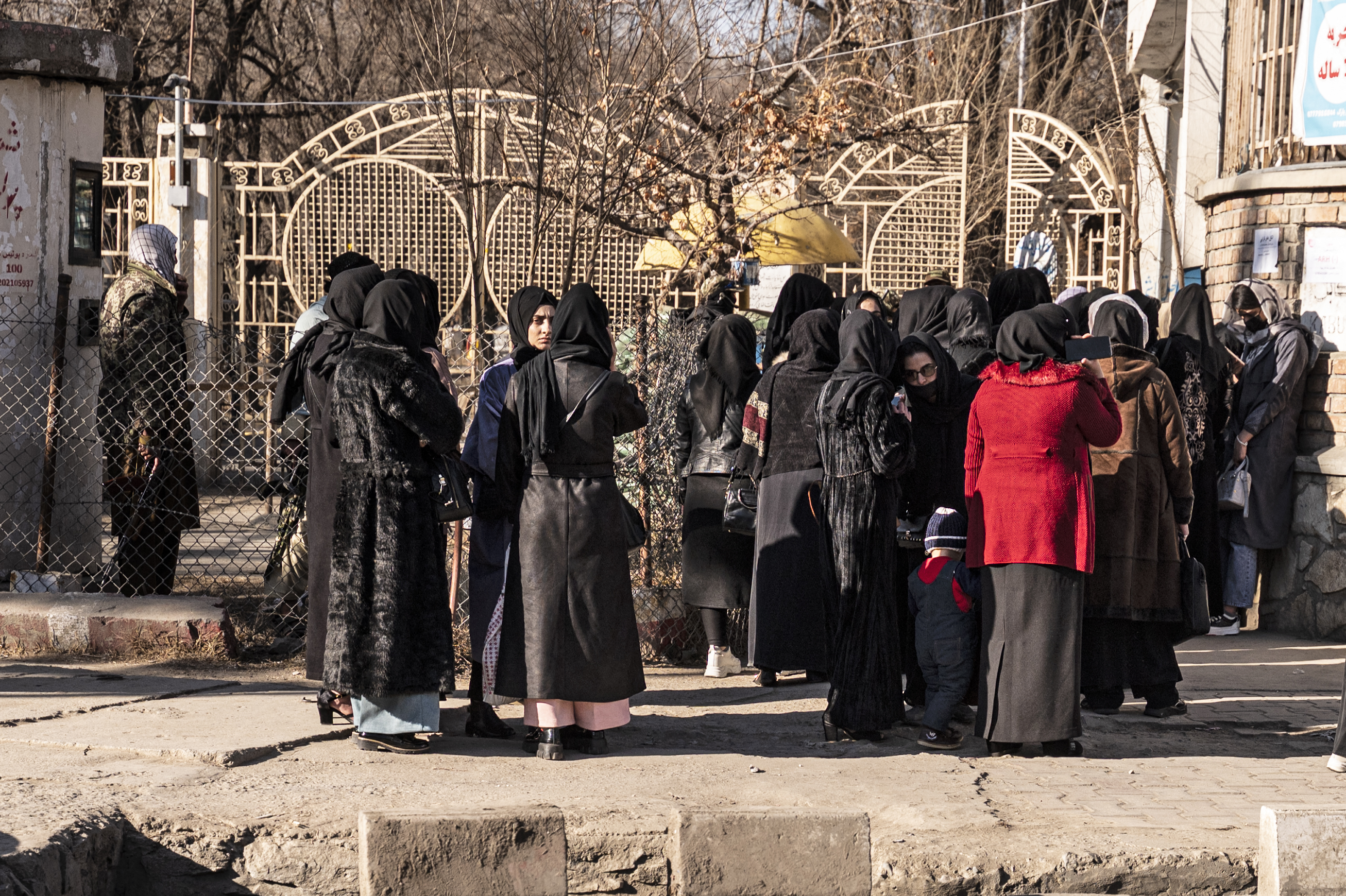
Turkey and Saudi Arabia have strongly condemned the Taliban’s nationwide ban on women attending private and public universities.
Turkish Foreign Minister Mevlut Cavusoglu said on Thursday that the ban was “neither Islamic nor humane”.
Speaking at a joint news conference with his Yemeni counterpart, Cavusoglu urged the Taliban to reverse the decision.
“What harm is there in women’s education? What harm does it do to Afghanistan?” Cavusoglu said. “Is there an Islamic explanation? On the contrary, our religion, Islam, is not against education; on the contrary, it encourages education and science.”
The Saudi foreign ministry expressed “astonishment and regret” at Afghan women being denied a university education. In a statement late on Wednesday, the ministry said the decision was “astonishing in all Islamic countries”.
They became the latest Muslim-majority countries to do so after Qatar, which has served as a mediator between the United States and the Taliban, criticised the decision.
There has also been domestic opposition to the ban, with a dozen women staging a protest in the streets of Afghanistan’s capital, Kabul, on Thursday, chanting for freedom and equality. “All or none. Don’t be afraid. We are together,” they chanted.
Several high-profile cricketers have also condemned the decision on social media. Rashid Khan, the former captain of the national team, tweeted that women were the foundation of society. “A society that leaves its children in the hands of ignorant and illiterate women cannot expect its members to serve and work hard,” he wrote.
The Taliban retook control of the country in August 2021 after being removed from power by a US-led military coalition two decades earlier.
Afghan society, while largely traditional, had increasingly embraced the education of girls and women after the Taliban had been removed from power.
Initially, the Taliban had promised a more moderate rule respecting rights for women and minorities but has since implemented its own strict interpretation of religious law.
Since retaking power, it has banned girls from secondary education and barred women from most fields of employment. Women are also banned from parks and gyms.

The Taliban has yet to publicly comment on the ban or respond to criticism from other countries. However, a spokesman for the Ministry of Higher Education, Ziaullah Hashmi, tweeted on Thursday that a news conference will be held this week to explain its decision.
The Turkish and Saudi reactions to the ban are part of a growing chorus of international criticism.
The United Nations special rapporteur to Afghanistan stated on Wednesday that the ban was “a new low, further violating the right to equal education and deepens the erasure of women from Afghan society”.
In a video shared with The Associated Press news agency, one woman said Taliban security forces used violence to disperse a group of protesters on Thursday.
“The girls were beaten and whipped,” she said. “They also brought military women with them, whipping the girls. We ran away, some girls were arrested. I don’t know what will happen.”
Another show of support for female university students came at Nangarhar Medical University in Jalalabad. Local media reported that male students walked out in solidarity and refused to sit exams until women’s university access was reinstated.







